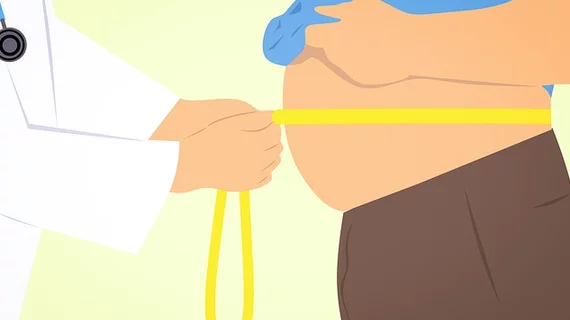Brain MRI links childhood obesity, depression
Pediatric obesity and depression may be connected in the brain through similar reward processing abnormalities, according to an April 23 release from Stanford University School of Medicine.
Lead author, Manpreet Singh, MD, assistant professor of psychiatry and behavioral sciences at Stanford and a psychiatrist at Lucile Packard Children’s Hospital, said the study aimed to help children and their families understand that pediatric obesity and depression are a "brain-based phenomena.”
“We want to destigmatize these issues," Singh said. "Understanding that there’s a brain basis may help both children and parents be solution-focused.”
For their study, Singh and colleagues performed brain MRI on 42 individuals between the 9 to 17 years old with a BMI greater than the 85th percentile and who showed symptoms of untreated moderate to severe depression, according to the news release.
The researchers found low volumes in the hippocampus and anterior cingulate cortex—both reward centers in the brain—in the participants’ brains and insulin resistance in some. Ultimately, insulin resistance led these participants to eat in an unrestrained manner and have a greater inability to feel pleasure, so the sooner the treatment, the better.
“With this new study, we are trying to understand the earliest age at which this vulnerability begins, and also the earliest time we will be able to intervene when we find the appropriate intervention,” said senior author, Natalie Rasgon, MD, PhD, a professor of psychiatry and behavioral sciences at Stanford. “Early intervention is important because, later in life, these are the same brain areas which will ultimately be vulnerable to neurodegenerative processes as well.”

